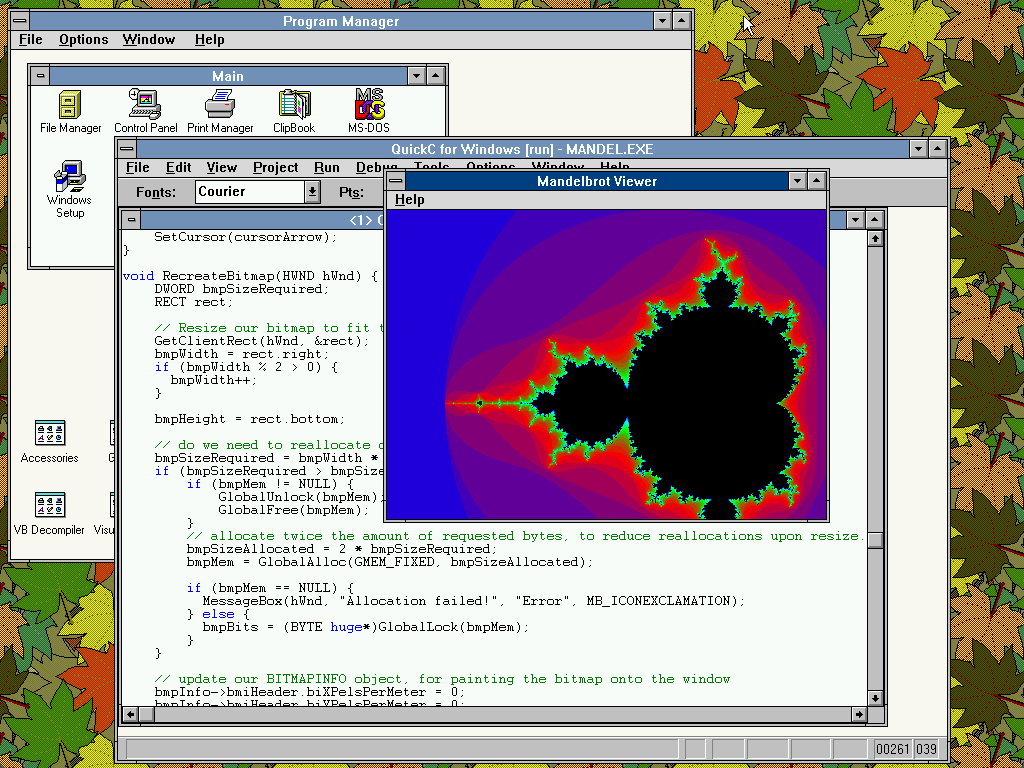As a software archaeologist I often find myself trying out old software that I hadn’t used myself in my own career. I think this can be very instructive, since old software can often have some good ideas built into it, ideas that might have been forgotten, but nevertheless ideas from which we can draw when building today’s software.
Recently I played around with Microsoft QuickC for Windows 3.1, which was a C development environment (IDE) targeted at individual developers, and had a rather modest set of features compared to enterprise-caliber IDEs of the era. Nevertheless my existing knowledge of Windows programming, coming from Windows 9x development and onward, transferred fairly easily onto QuickC, and I was able to develop a sample app fairly quickly:

It’s a Mandelbrot viewer/explorer app, which is one of my favorite “sample” apps to build in a new environment. It runs in any version of Windows 3.x, has no dependencies, and weighs in at 20KB. Here is the source code, if you like!
What struck me about using QuickC is the simplicity and efficiency of it. Even though it still has the familiar issues of native Windows programming — many screenfuls of boilerplate code and having to manually handle message loops and drawing subroutines — after this was out of the way, the sailing was smooth.
Today I make Android apps for a living, and I can’t help but compare the user experience of building an Android app (using Android Studio) to the experience of building old-school Windows apps, specifically in the way of efficiency. The compilation time of my QuickC app was no more than a few seconds (in an emulator that was emulating a 50 MHz PC). Compare this with building a similar Android app, where kicking off a clean Gradle build is a cue to take a coffee break, even on the most modern hardware. Of course over the years the Gradle build process has gotten faster, and the Android folks at Google are quick to award themselves a medal for improving build speeds by a few seconds. Still, it’s only very recently that Gradle has gotten fast enough to finish building a Hello World app in under a minute. I won’t even get into the sizes, now measured in gigabytes, that modern IDEs require to make themselves at home on our workstations, whereas the entirety of QuickC was able to fit on three floppy disks.
Is this kind of level of efficiency and streamlining squarely in the distant past of software tools, or can we in the present day take steps to get back to that spirit?